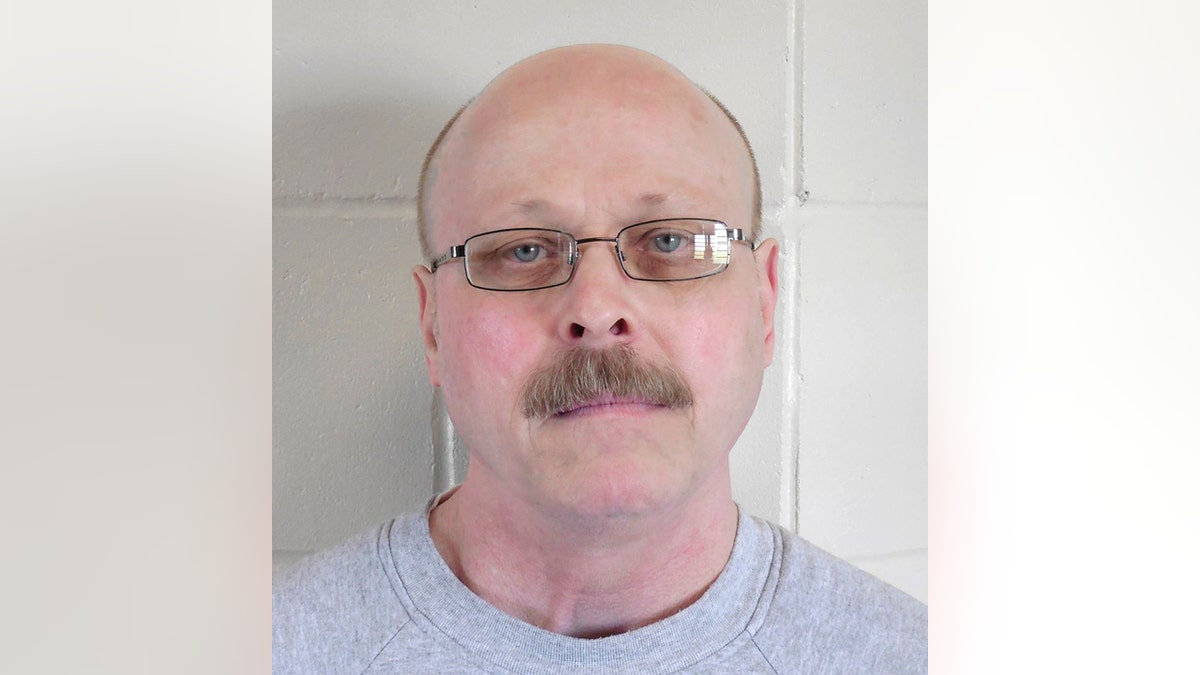
This Nebraska Department of Correctional Services photo shows death row inmate Carey Dean Moore. (AP)
Nebraska’s first execution since 1997 will be carried out after a judge ruled Friday in favor of the inmate’s wishes, despite a German pharmaceutical company's lawsuit claiming the state illicitly obtained its drugs.
Carey Dean Moore, one of the nation’s longest-serving death row inmates, will be executed on Tuesday after being convicted in 1979 for killing two cab drivers, five days apart. Moore has stopped fighting the state’s efforts to execute him.
But Fresenius Kabi, a German drug company, filed a lawsuit this week trying to stop the execution, alleging that the state illegally obtained at least one of the company’s drugs and that proceeding with it would damage its reputation and business relationships; it strongly opposes the use of its products for use in executions.
Moore is scheduled to be executed with a combination of four drugs: the sedative diazepam, commonly known as Valium, to render him unconscious; fentanyl citrate, a powerful synthetic opioid; cisatracurium besylate to induce paralysis and halt his breathing; and potassium chloride to stop his heart.
Nebraska state officials have refused to identify the source of their execution drugs, but Fresenius Kabi alleges the state's supply of potassium chloride is stored in 30 milliliter bottles. Fresenius Kabi said it's the only company that packages the drug in vials of that size.
U.S. District Judge Richard Kopf ruled against the company, arguing that temporarily blocking the execution would ‘frustrate the will of the people.”
SOUTH DAKOTA DECLINES TO REVEAL DRUG TO BE USED IN EXECUTION
Kopf was referring to the 61 percent of Nebraska voters who chose to reinstate capital punishment in 2016 after lawmakers abolished it.
"I will not allow the plaintiff to frustrate the wishes of Mr. Moore and the laws of the state of Nebraska," Kopf said during the hearing.
The Associated Press contributed to this report.

